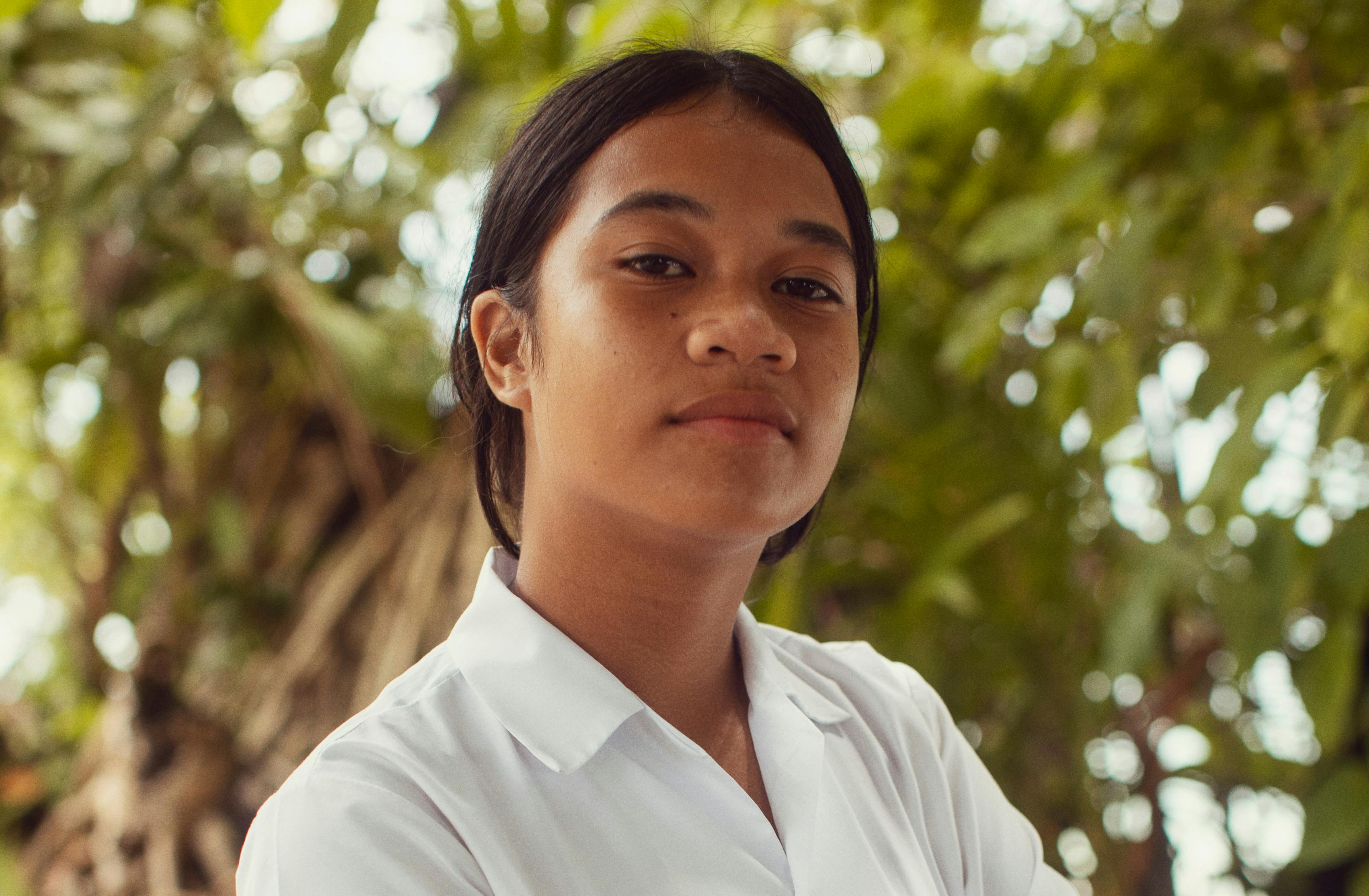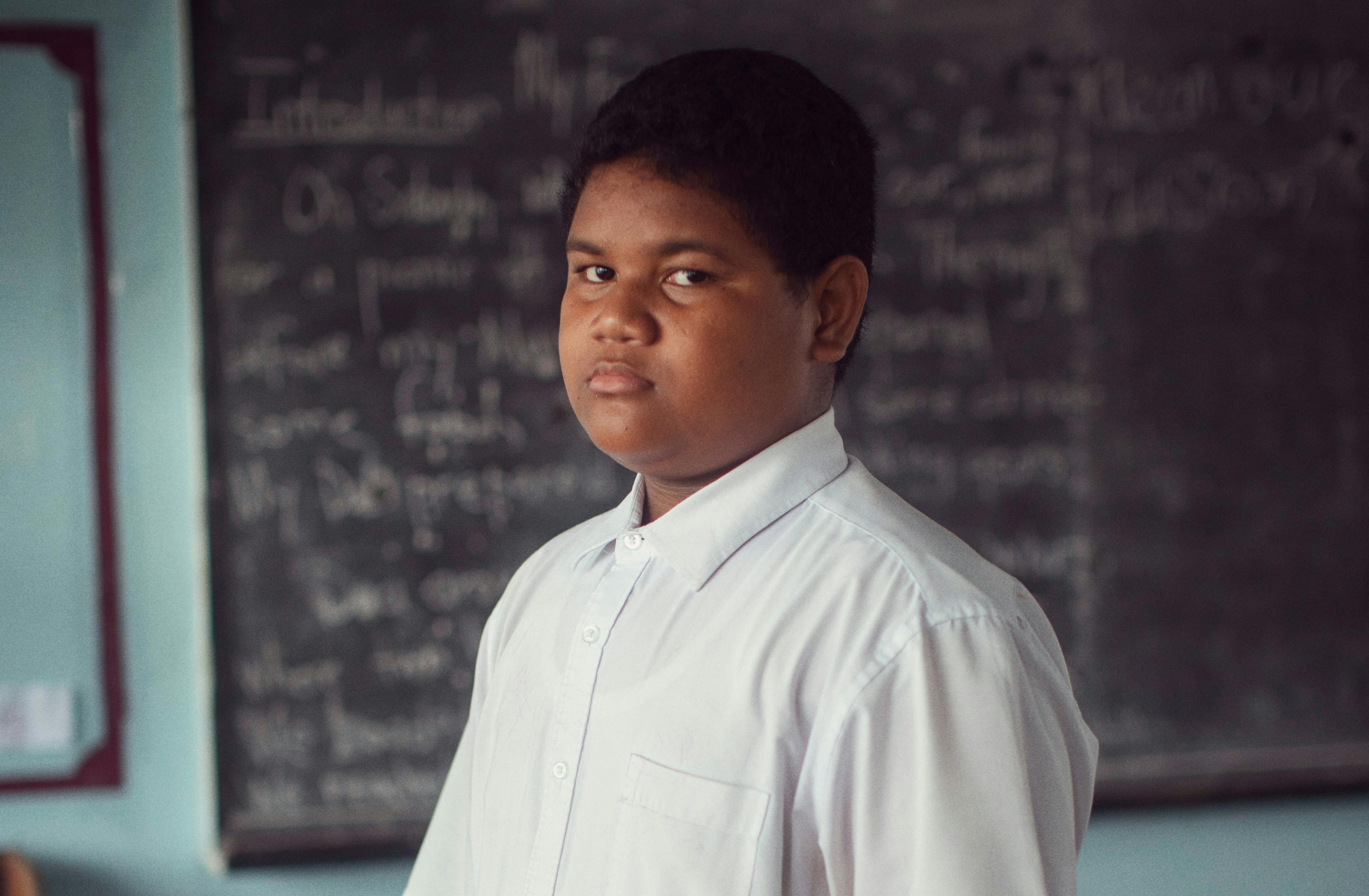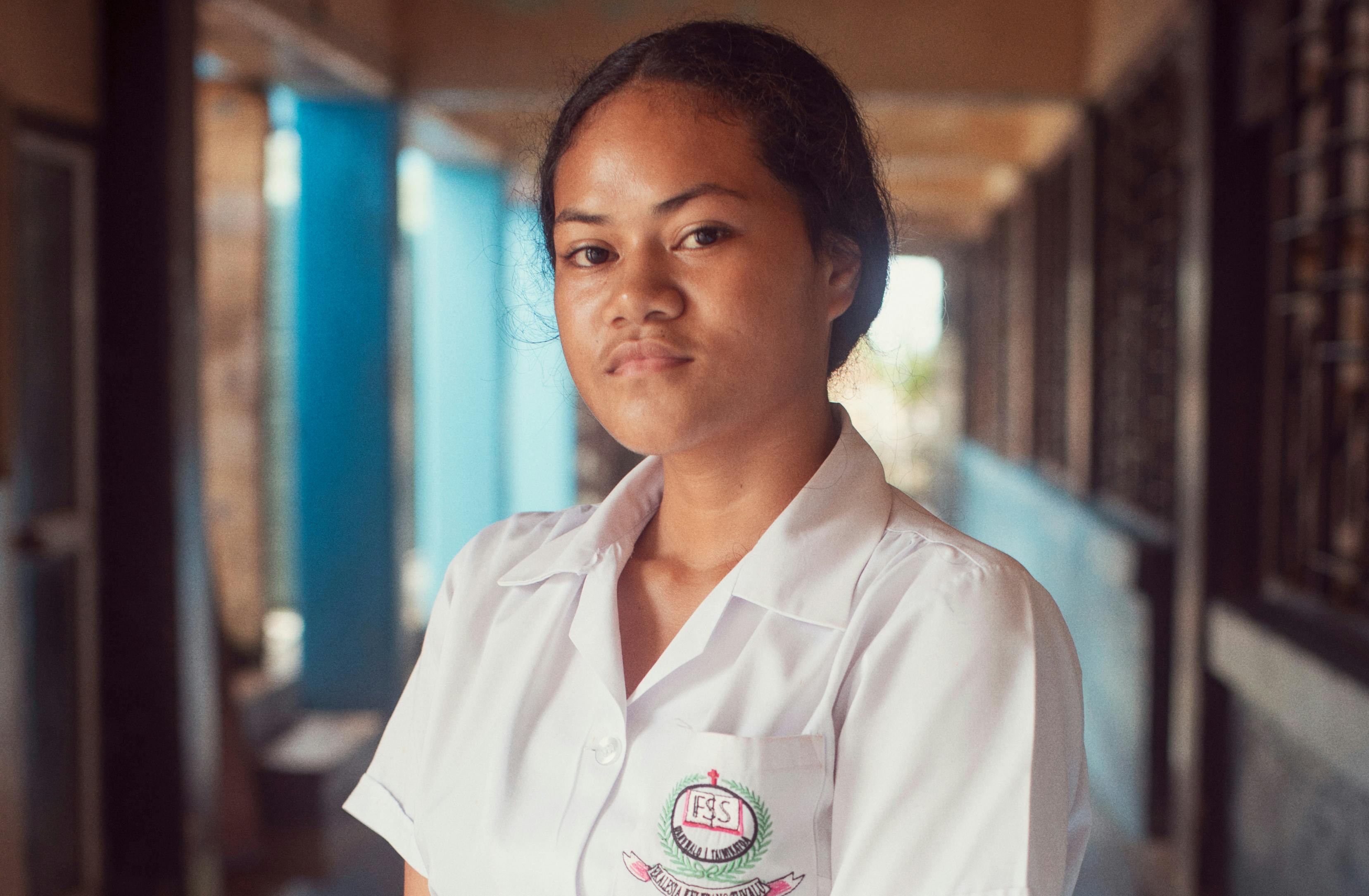
UNI560974
The Last Generation
Home
Stories
The Last Generation
Coconut palms, ocean sunsets, and turquoise waters. Tuvalu. This ‘tropical dream’ is starting to fade. 12-year-old Liveti and his friends love to leap into the ocean from the walls of sandbags bordering Tuvalu’s capital. Walls that were built to help protect this paradise from erosive currents and rising sea levels. Even still, their home is increasingly threatened by the climate crisis. Now they may be the last of their generation to experience its beauty.
Tuvaluans built this area to reclaim lost land and protect it from further erosion. Yet nowhere is the battle against climate more obvious. These sandbag walls are only expected to last 50 years, 100 at best. Tuvalu is quickly on its way to becoming the first uninhabitable country in the world because of climate change. Scientists predict that 95% of the country will be underwater at high tide by 2100. This is a race against time.

1 billion kids around the world are at extremely high risk due to the climate crisis. About 5,000 of them live in Tuvalu. It isn’t just the land and people under threat, it’s a culture, an identity, and a way of life.
Climate changes have already left a devastating mark on this small group of islands and changed the living conditions for its people.

UNI560403
This isn’t just a problem for future generations, it’s happening right now.

UNI561159
Greenhouse gas emissions, not of Tuvalu’s making, are causing sea levels to rise. Flooding is not a new problem, but over the years, there’s been more of them. In a country sitting only a few metres above sea level, this has devastating consequences.
The country’s farmland and groundwater are at risk of contamination by the salt water. Increasing water temperatures are causing coral to die, poisoning the fish, and in turn making those who eat them very sick. Meanwhile, strong tides are taking chunks of land with them as they return to the ocean. Tuvalu is slowly but surely being swallowed by the ocean. Today there are hardly any sandy beaches left.
On the country's main island, Fongafale, 14-year-old Alaina and her schoolmates hang out under the shade of the schoolyard canopy. It’s the only tolerable place to be as temperatures rise above 30 degrees alongside intense humidity. Her school is only 20 metres from the ocean that has been swallowing up their coastline.
Concerned for the future of Tuvalu and their children, Alaina’s parents moved them to the safety of New Zealand three years ago. During her last visit Alaina chose to stay behind with her grandparents in Tuvalu. "I love being in Tuvalu. The atmosphere here is very special. We have fun, and we are much more together here. In New Zealand, people live more separated and focus on themselves. I find that too boring and lonely," she says. Despite being aware of scientists’ predictions, many students feel the same. Tuvalu is their home.

UNI485862

UNI561162

UNI485861
Every year New Zealand grants 150 citizens of Tuvalu residence in New Zealand. To live, work, and study. Migration plays a significant role in Tuvalu as it provides opportunity and security. For older students, schools even teach how to migrate in practical ways. Which forms to fill out, how, and what to expect from the new societies they’ll become a part of.
Migration may be an appealing option, but for many it's a last resort. The culture and identity of Tuvaluans are tied to the land.
"I love the sun and the warm weather here in Tuvalu. And I love that my friends are so close and that we are so much together," says 13-year-old Mono.
Internet access in Tuvalu is poor. The mobile data network is slow. And all the country's electricity is produced by generators. Though these sound potentially detrimental, they also drive and highlight Tuvalu’s strong sense of community.
Only three flights pass through the international airport in Tuvalu each week. When the planes take off, locals flock the runway for games of soccer, rugby, and volleyball while others picnic and take full advantage of the space. In a country where land is disappearing, so all available land is utilised to the fullest.

UNI562469

UNI559743
Everyone looks after each other in Tuvalu. Though isolation brings many challenges that call for outside help.
Medicine is in short supply. With support from organisations like UNICEF, the country now has its own vaccination program. Tuvalu's remoteness makes logistics difficult. Thanks to cold boxes, refrigerators, and a well-established transport network, vaccines are transported at the right temperature, arrive safely, and are ready to be administered.
Rising sea levels also create other problems in Tuvalu. Seawater has contaminated the groundwater with salt. Now groundwater isn’t suitable for drinking, farming, or washing - making the island dependent on rainwater. Almost all homes have at least one 10,000L water tank. This still leaves the nation vulnerable as recent droughts have brought with it risks of water shortages and disease outbreaks.
When emergency strikes, we’re there to help with water storages and risks of outbreak and malnutrition, but long-term fixes are the only way to give Tuvalu a future of certainty.

UNI562493
Life is already hard for Tuvaluans. And it will only get harder. A once self-sufficient country can no longer sustain itself. They need more help from beyond their shores.

UNI485837
"I dream of becoming a climatologist so that I can hopefully do something to ensure that Tuvalu is still here in the future. It's hard to see how the sea, which we love so much and live so close to, now threatens all our land. My uncle lives close to the sea, and he has lost his garden. It has disappeared into the water. We need the world to help Tuvalu survive. We need help to build even more land that is protected from the sea." Says 16-year-old Adrianna from Fetuvalu Secondary School.
Every year Tuvalu stands together with other Pacific nations at United Nations Climate Change Conference more commonly known as COP. Fighting for the rest of the world to recognise their contributions that are causing problems for the small island nation. And to request the countries responsible for the largest emissions to finance the protection of Tuvalu's future.
In 2023, action at COP28 gave hope for the future when the creation of a climate fund was adopted. A fund to help low-income countries with the losses and damages they suffer due to climate change. How much this will mean for Tuvalu in the coming years remains to be seen.
We’ll continue to be there for Tuvaluans like Liveti, Alaina, Mono, and Adrianna. To help support and strengthen their access to water, sanitation, vaccines, and early education. Most importantly we’ll keep advocating for urgent climate action. Only by tackling the climate crisis can we ensure a more certain future for kids, families, communities, and the culture of Tuvalu.

UNI562537
Original story by Lasse Bak Mejlvang